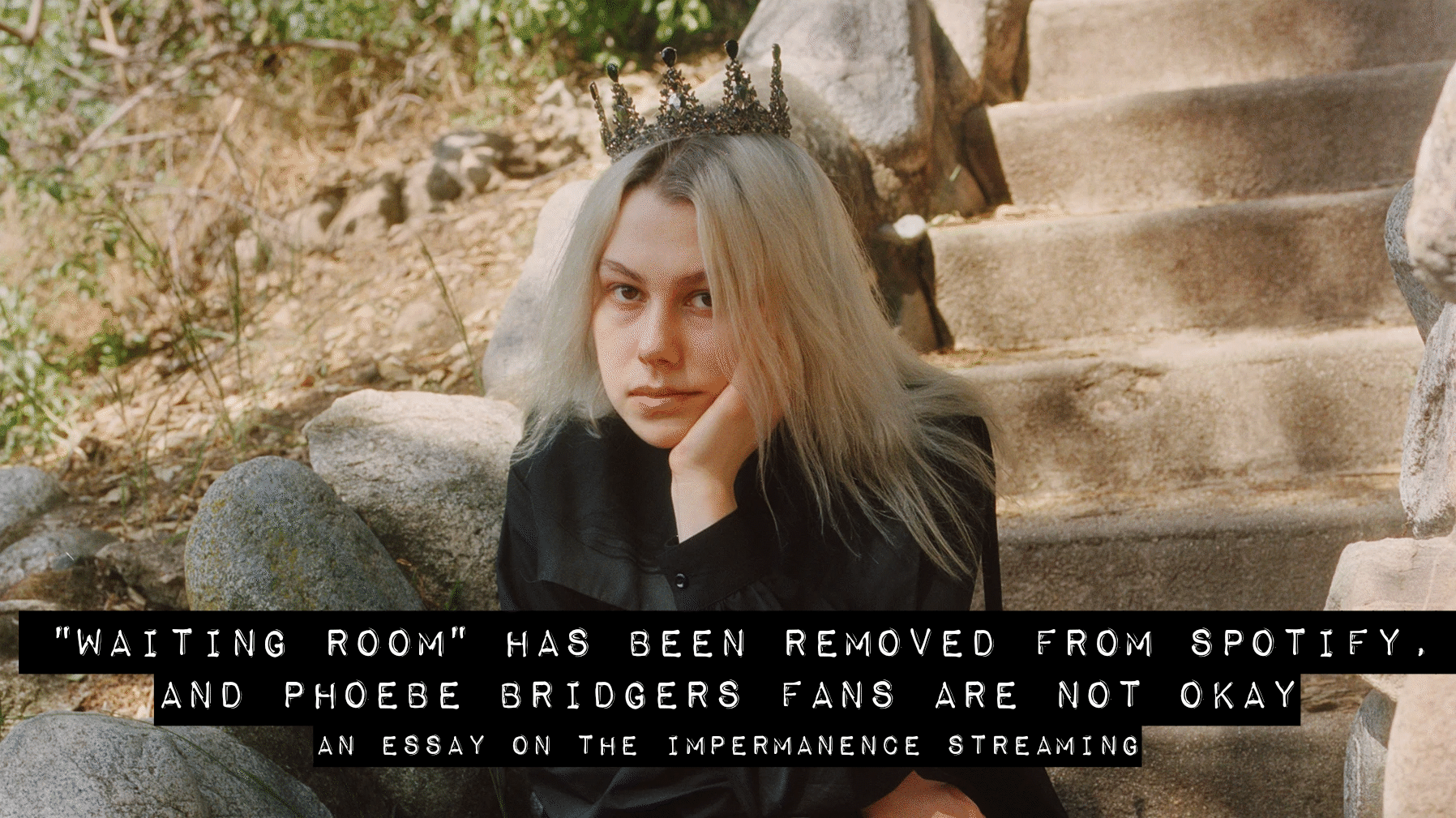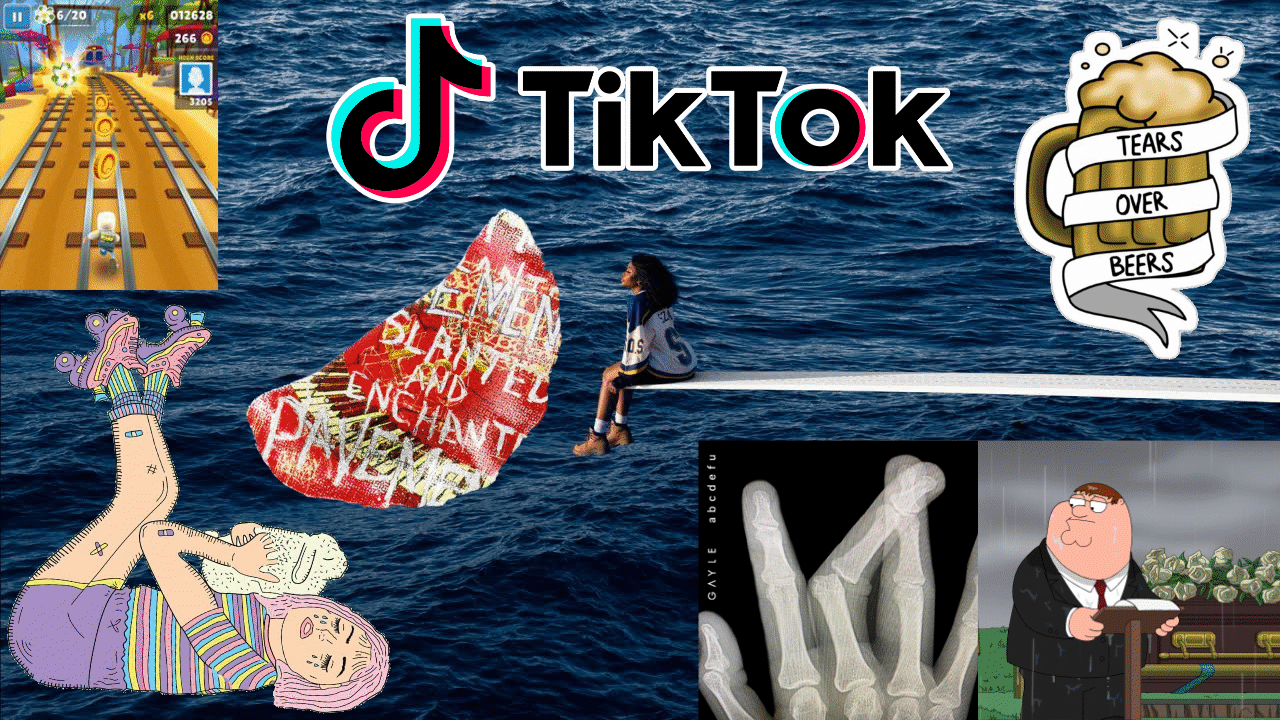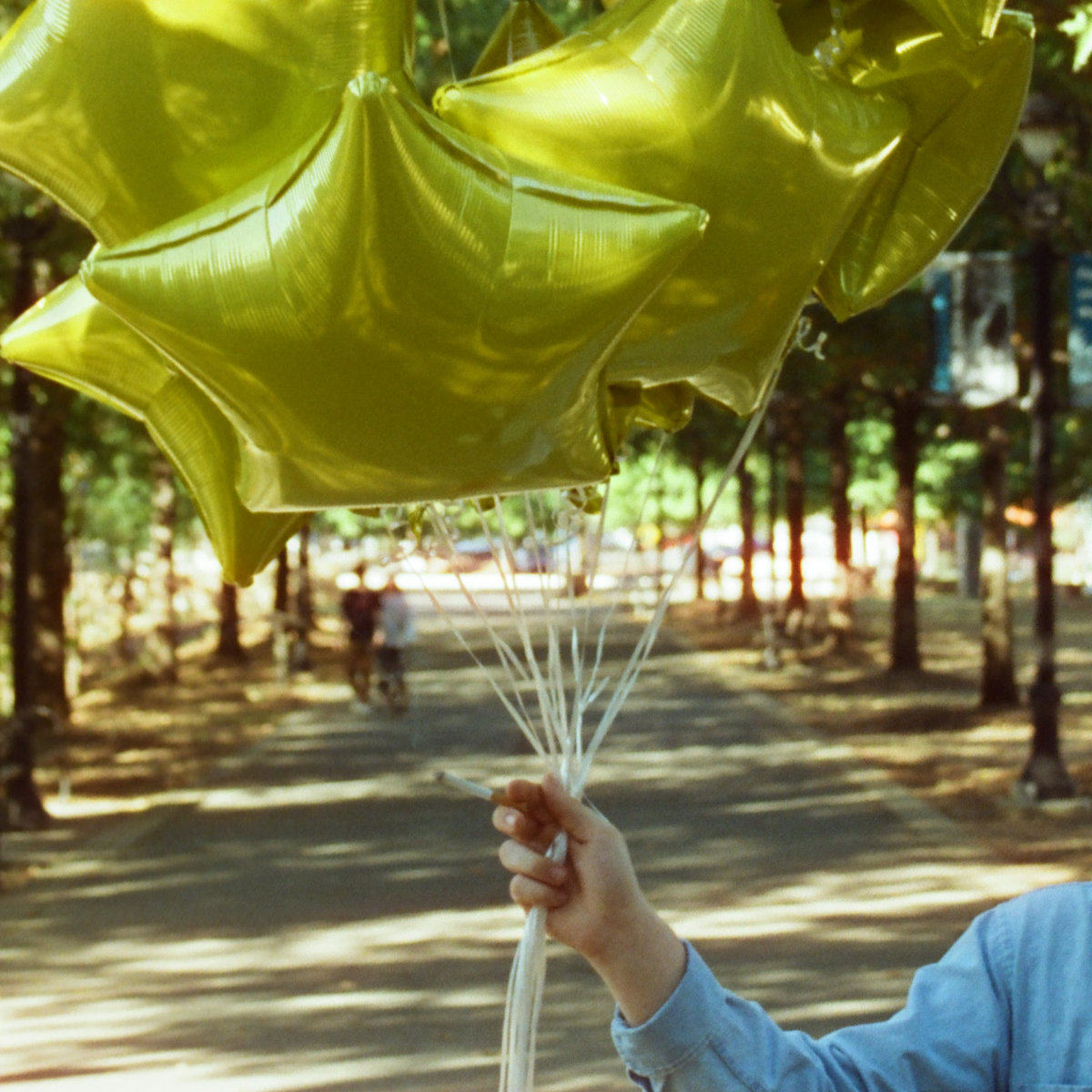"Waiting Room" Has Been Removed From Spotify, and Phoebe Bridgers Fans Are NOT Okay
/“Waiting Room” by Phoebe Bridgers is no longer available on Spotify, and that should worry everyone. The six-and-a-half-minute gut-wrencher wasn’t on any of Phoebe’s core studio albums, EPs, or various side projects but appeared instead on a 2015 compilation put together by Lost Ark Studios.
Having been released five years prior to Punisher (aka before Phoebe Bridgers became Phoebe Bridgers) and on a relatively obscure comp, “Waiting Room” was a hidden gem in Phoebe’s discography. The track was a diamond in the rough, waiting to reward those willing to dig around for it. Now it’s gone.
We have no idea whether the song is off Spotify because of some random copyright nonsense, a license renewal lapse, or something else entirely. All fans know is that they can’t easily listen to one of their favorite Phoebe tracks.
If I were to guess, I don’t think Phoebe or her crew even assumed people would notice if this song disappeared. In fact, they might not have even known. The track had over 24 million streams on Spotify but was buried so deep under other, more popular releases they probably didn’t foresee any outcry to this song being yanked off streaming. But outcry there was.
One of the first warning shots came from “phoebe daily,” a Phoebe Bridgers fan account on Twitter with over 15k followers. On Tuesday, the account tweeted in all lowercase, “‘waiting room’ is no longer on spotify,” with as much pseudo-journalistic authority as a fan account can muster. The tweet quickly garnered thousands of likes and shocked quote tweets.
“This is literally the worst thing that’s ever happened in my life, and I watched my dad die when I was 17,” tweeted one distraught fan. Elsewhere, people used humor to soften the blow. Some users held mock funerals for the song, while others reminded people to be kind to their gay friends and the hot girls in their lives because they would be in mourning. It was collective group therapy at its finest and the kind of reaction that feels hilariously on-brand for Phoebe’s fanbase. People were truly Going Through It.
As word spread through Twitter, Reddit, and TikTok, one question was being asked consistently: why? Why this song? Why now? Why would Phoebe do this to me? The frustrating thing is we don’t know.
While some guessed it might be a copyright issue, others noticed that Lost Ark Studios (the recording studio that put together the release) was labeled as “temporarily closed” on Google and reasoned that they might have gone out of business. No money means no more paying to keep your songs up on streaming.
An optimistic fan hoped that maybe this meant Phoebe was recording a new version of “Waiting Room.” This is a nice theory, especially in the wake of the return of Boygenius, but in the following sentence, the same person also speculated that Phoebe herself doesn’t resonate with that song anymore given how old it is. That’s a common phenomenon that many artists have with their early work, especially those who rise to success as astronomically as Phoebe. In any case, we still are left guessing, and that puts everyone in a similar frustrated position.
Whether or not you count yourself among the ranks of Phoebe fans lamenting the loss of their favorite under-the-radar deep cut, this news is symptomatic of a bigger problem with streaming services. Spotify ain’t free. It isn’t free to use as a listener, it isn’t free to run as a company, and it isn’t free for the bands who upload their music to the service.
As I’ve written about before, this could all go away at any moment. Spotify could go under tomorrow, and you’d lose everything: your songs, your playlists, and every single artist you follow. The same thing goes for Apple Music, TIDAL, or any other digital-based streaming subscription service.
Even if the company didn’t go bankrupt (admittedly a far-flung catastrophic scenario), there are other ways you could still lose access to your library. Stop paying for your monthly account? You better have a backup plan. Spotify’s servers go down (as they did earlier this month)? Good luck listening to your music. Violate Spotify’s terms of service? Kiss your profile goodbye.
My point is there are a million different ways you could lose access to your music library, and for a person like me who spends countless hours/weeks/months of their life building these intricate webs of musical obsession, that’s terrifying.
This is why seeing “Waiting Room” going away is such a shock; it feels like a violation of our personal music library. Removing the ability to hear a song just flat-out sucks, no matter how you cut it. The second kick in the ass came when Lost Ark also removed the track from their Bandcamp page, essentially eliminating any easy (or legal) way to obtain an MP3 copy of the song. Fuck that.
Things like this are why I have a safety net. I know sometimes I probably sound like a physical media doomsday prepper, but the whole “Waiting Room” fiasco should act as a reminder to save the things we love. It’s a reminder that preservation is important. It’s not like this song is gone forever, but it sure is gonna be a hell of a lot harder to hear now. And who knows? Maybe “Waiting Room” will be re-uploaded to streaming in a few days, and it will be like none of this ever happened. But maybe it won't.
Even still, I hope this instance inspires at least a few people to start offline music collections. Download a bunch of MP3s to your computer, back them up on a hard drive (or two) and keep them safe. We can only trust artists, labels, and companies to be stewards of their work to a certain point. Sometimes it’s best to assume that if you’re not backing something up, then no one is.
In the case of “Waiting Room,” Phoebe is a big enough artist that this track will live on through file sharing, Youtube uploads, and live performances until the end of time, but she’s the exception to the rule. All of this could go away at any time and for any reason, so preserve what you love, back it up, share it, and treat it with the reverence that it deserves. Most importantly, as with all art, love and appreciate it while you can.












